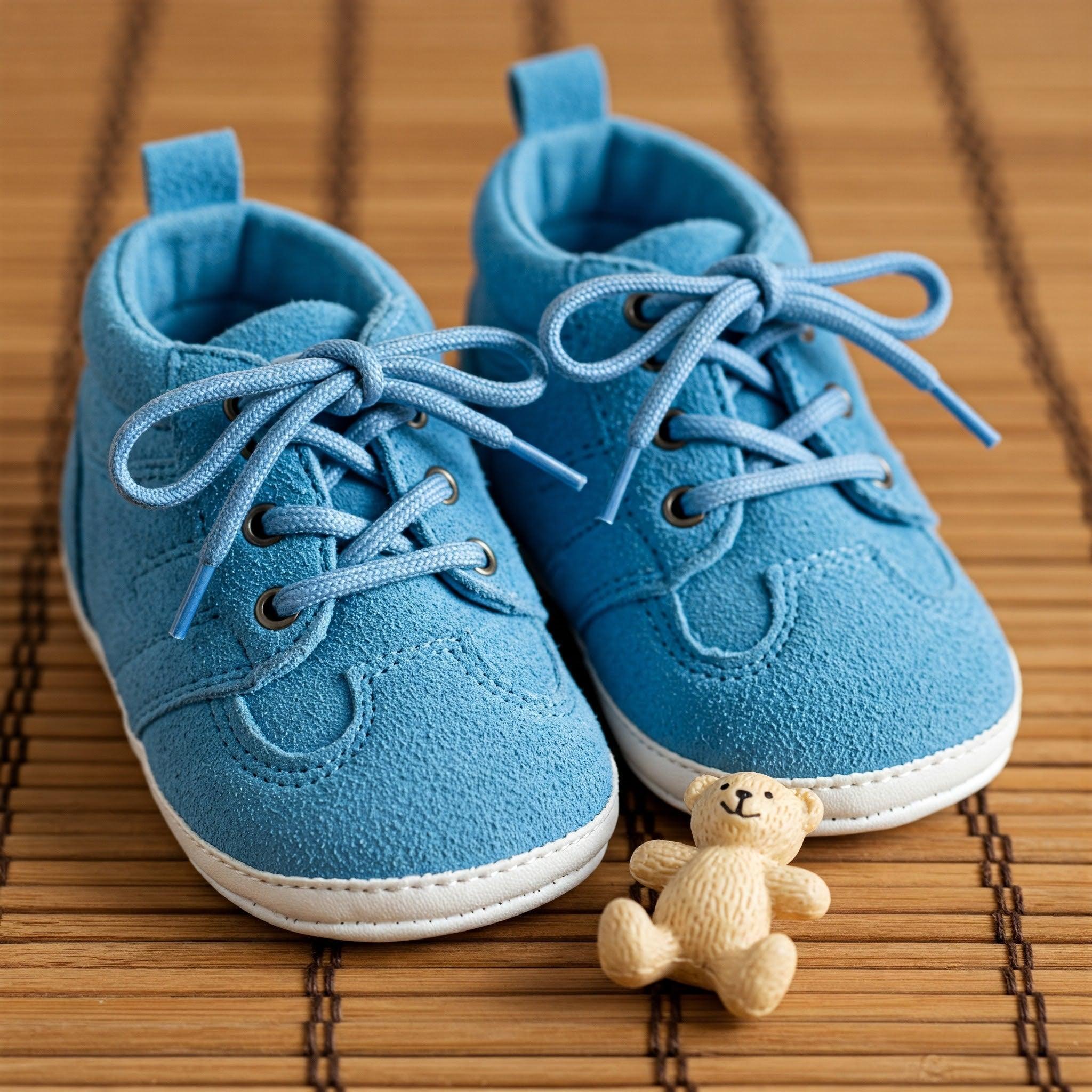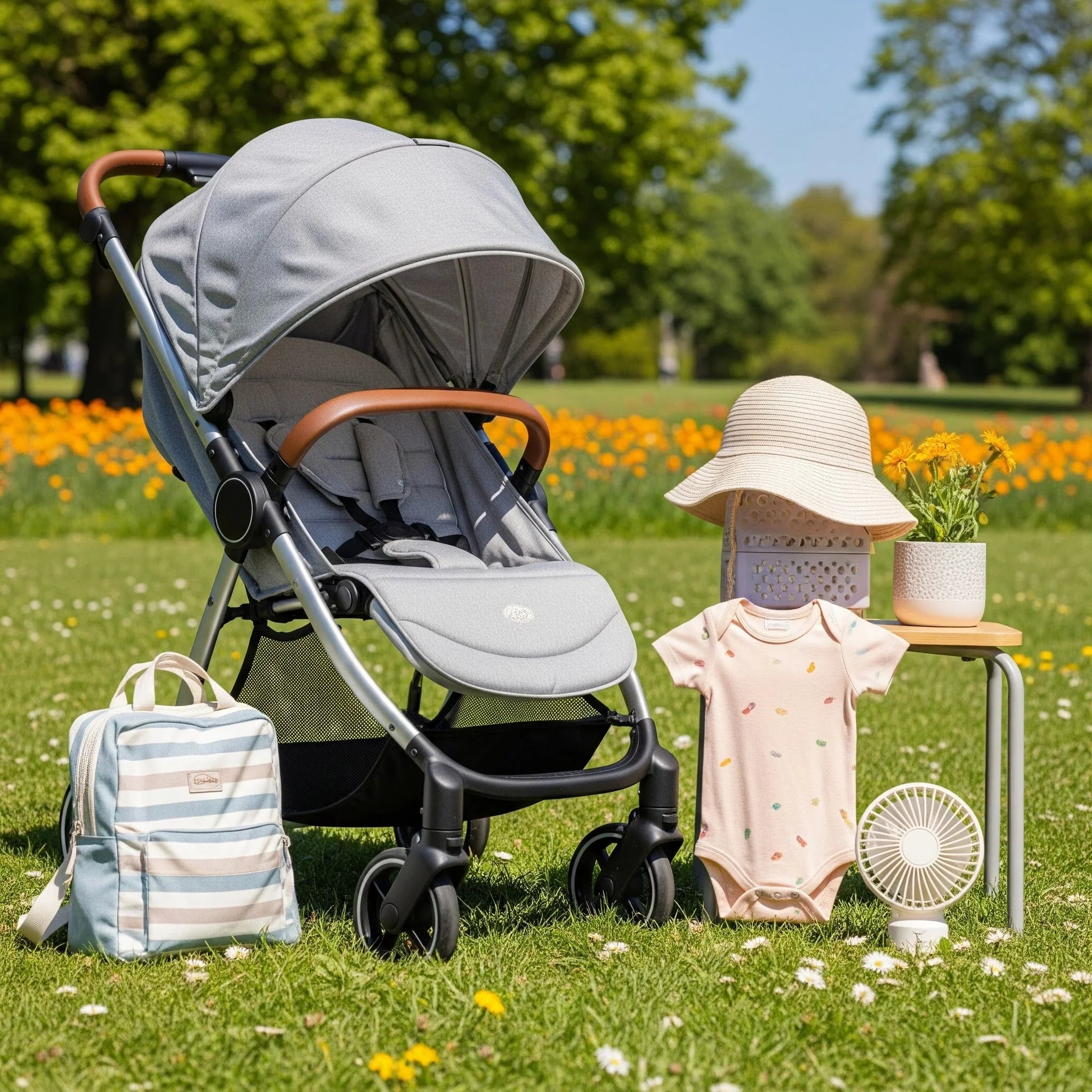Children start walking at different ages, typically between 9 to 18 months. The age at which a child begins to walk can depend on several factors, including genetics, physical development, and environment.
Genetics play a significant role in determining when a child will start walking. If parents walked early, their child might also start walking early. Physical development is another crucial factor. Some babies develop their muscle strength and coordination faster than others, allowing them to stand and walk sooner.
A child's environment also influences their walking timeline. Babies who have space to move and explore may begin walking earlier because they have more opportunities to practise.
It's important for parents to be prepared for early walkers. Early walkers might need more supervision as they explore their environment. This can help prevent accidents and injuries. Parents should ensure that their home is baby-proofed, with safety gates, covered electrical outlets, and secure furniture. Being prepared also means having appropriate footwear and clothing that allows the baby to move freely and safely.
Encouraging early walkers through positive reinforcement and providing them with safe spaces to explore can support their development. Parents can help by engaging in activities that strengthen the child's muscles and coordination, like supervised playtime on the floor.
To sum up, while the age at which children start walking varies, it is beneficial for parents to be prepared for early walkers. This preparation can ensure the child's safety and support their physical development, creating a positive environment for them to grow and explore.
At Baby Gifts Australia, we pack high-quality baby footwear that could provide your little early walker with the support they need. But first, let’s learn more about early walking in children and how to prepare for it.
Why Do Some Toddlers Start Walking Early?
As we mentioned earlier, children begin walking at different ages, usually between 9 to 18 months, due to a mix of genetic and medical factors.
Usually, genetics play a key role. If parents or close family members started walking early, the child might also walk early. This is because certain traits, like muscle strength and coordination, can be inherited. These traits are essential for walking, and children who inherit strong muscles and good coordination might walk sooner.
Medical factors also influence walking age. Some children are born with conditions that affect their muscles or bones, which can delay walking. For example, babies with muscle weakness or conditions like hypotonia (low muscle tone) may take longer to walk. On the other hand, children who are healthy and have no medical issues might walk earlier.
Another important factor is the child's overall physical development. Babies grow and develop at their own pace. Some might develop the necessary motor skills for walking sooner than others. These skills include sitting up, crawling, and pulling up to stand. Each child reaches these milestones at different times, which affects when they start walking.
Let’s not forget, the environment in which a child grows up can impact their walking age. Babies who have lots of space to move around and explore might practise walking more often, leading to earlier walking. Conversely, those in environments with less space might take longer.
As we can see, the age at which children start walking is influenced by genetics, medical conditions, and overall physical development. Understanding these factors can help parents be patient and supportive, knowing that each child develops at their own unique pace. Early walking is not necessarily a sign of advanced development, and later walking is not usually a cause for concern unless accompanied by other developmental delays.
How Can Parents Support Their Early Walking Tot
Supporting an early walker involves creating a safe environment, providing the right gear, and encouraging physical activities that promote healthy walking.
Guarantee a Safe Home Environment
Safety is the top priority for an early walker. Early walkers are curious and prone to exploring, which can lead to accidents.
- Baby-Proof the House – Install safety gates at the top and bottom of stairs, secure heavy furniture to the wall, and cover electrical outlets.
- Remove Hazards – Keep small objects, sharp items, and toxic substances out of reach. Ensure that rugs and carpets are slip-resistant.
- Supervise Closely – Always keep an eye on your child, especially in areas where they can fall or get hurt.
Provide Appropriate Footwear
Proper footwear is essential for an early walker. Shoes protect their feet and provide the support they need as they learn to walk.
- Flexible Soles – Choose shoes with flexible, non-slip soles that allow natural movement of the foot.
- Correct Fit – Ensure the shoes fit well, not too tight or too loose, to avoid discomfort and support healthy foot development.
- Barefoot Time – Allow your child to walk barefoot indoors to strengthen their foot muscles and improve balance and coordination.
Encourage Muscle Strengthening Activities
Strengthening the muscles used in walking helps your child develop a healthy walking form.
- Tummy Time – Encourage tummy time to build upper body and core strength, which is crucial for balance.
- Crawling – Allow plenty of crawling time. Crawling builds arm, leg, and core strength and improves coordination.
- Push Toys – Provide sturdy push toys that your child can hold onto while they walk. These toys offer support and help with balance.
Create Safe Play Areas
Having a safe, designated play area encourages your child to move and explore freely.
- Soft Flooring – Use soft mats or carpets to cushion falls and provide a safe surface for walking practice.
- Obstacle Courses – Set up simple obstacle courses with pillows and soft toys to encourage climbing and stepping over objects, enhancing coordination and balance.
- Outdoor Play – Take your child to parks or playgrounds where they can walk on different surfaces and practise climbing and exploring safely.
Provide Physical and Emotional Encouragement
Early walkers need both physical and emotional support as they navigate this new milestone.
- Hand-Holding – Walk with your child while holding their hands to give them confidence and support.
- Encouragement – Cheer them on and praise their efforts. Positive reinforcement boosts their confidence and motivation.
- Patience – Be patient and let your child progress at their own pace. Avoid pushing them to walk before they are ready.
Monitor Development with Expert Help and Seek Guidance if Needed
Keep an eye on your child’s development and seek professional advice if you notice any issues.
- Regular Check-Ups – Take your child for regular paediatric check-ups to ensure they are developing normally.
- Watch for Red Flags – If your child is walking on their toes, has an unusual gait, or shows signs of discomfort, consult a healthcare professional.
- Physical Therapy – If recommended, engage in physical therapy sessions to address any developmental concerns and ensure healthy walking patterns.
Supporting an early walker involves creating a safe and nurturing environment, providing the right gear, and encouraging physical activities that promote healthy development. By baby-proofing the house, providing appropriate footwear, and encouraging muscle-strengthening activities, parents can help their child develop a healthy walking form. Creating safe play areas and offering physical and emotional support further boosts the child’s confidence and skills. Monitoring development and seeking guidance when needed ensures that any potential issues are addressed early, paving the way for a happy and healthy early walker.









